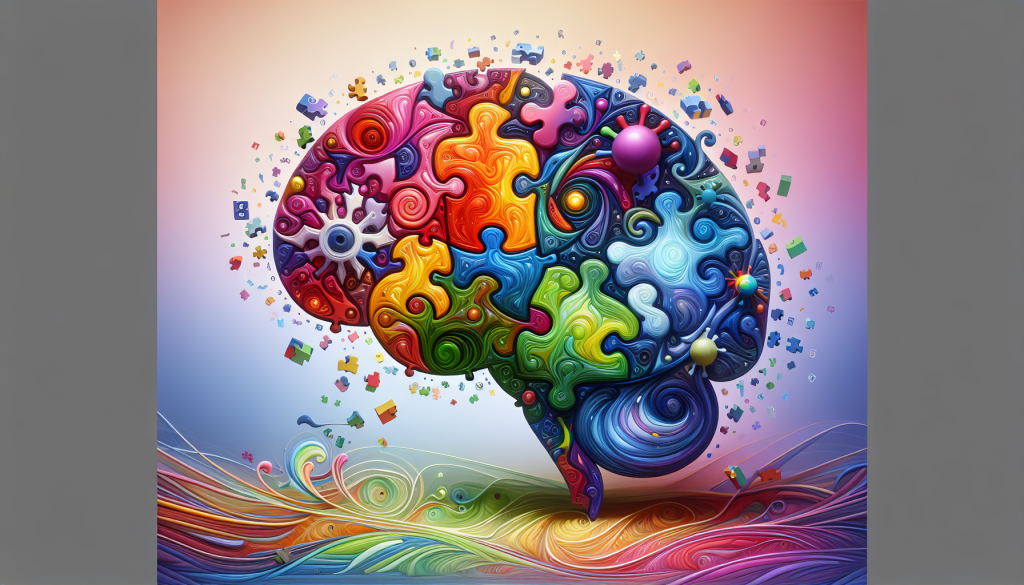How does autism impact IQ? Autism Spectrum Disorder (ASD) presents a diverse range of cognitive abilities, leading to varying IQ levels. Some individuals with autism may have intellectual disabilities, while others possess above-average intelligence. This article examines the relationship between autism and IQ, including measurement challenges and ways to support cognitive development.
Key Takeaways
- Autism Spectrum Disorder (ASD) presents a diverse range of cognitive abilities, making it essential to understand individual strengths and challenges rather than generalizing intelligence levels.
- Early intervention and tailored educational approaches significantly improve cognitive development and outcomes for autistic individuals, helping them to thrive in various environments.
- Advocacy and awareness are critical in promoting inclusivity and recognizing the unique capabilities of autistic individuals, thereby challenging common stereotypes and enhancing their contributions to society.
Understanding Autism and IQ: Key Insights for Parents and Educators

Autism Spectrum Disorder (ASD) encompasses a diverse range of cognitive abilities, meaning intelligence cannot be generalized across all individuals. Each person’s cognitive strengths and challenges are unique, and there exists a wide range of IQ scores among autistic individuals, from intellectual disabilities to higher intelligence levels.
This uniqueness emphasizes the importance of understanding the diverse capabilities within the autism spectrum.
Introduction
Autism Spectrum Disorder (ASD) is a neurodevelopmental condition that affects social interaction, communication, and behavior. Individuals with autism can have a range of cognitive abilities, with many experiencing varying levels of intelligence. The autism spectrum reflects a diverse population where some individuals may have intellectual disabilities while others may possess high intelligence. Understanding the differences in cognitive abilities is vital for educators and parents in providing the right support and interventions.
As we delve deeper into this topic, we’ll explore factors influencing IQ in autism, the strengths and challenges faced by autistic individuals, and effective ways to support their cognitive development. A better understanding of these aspects can help create a more inclusive and supportive society for autistic individuals.
Autism Spectrum Disorder and Intelligence

Autism Spectrum Disorder (ASD) encompasses a diverse range of cognitive abilities, meaning intelligence cannot be generalized across all individuals. There exists a wide range of IQ scores in autistic individuals, from intellectual disabilities to higher intelligence levels. Understanding the intelligence levels of individuals with autism fosters a more inclusive and supportive society.
Recognizing the varied cognitive profiles of autistic individuals promotes acceptance and tailored support to meet diverse needs.
Defining Autism Spectrum Disorder
Autism is often defined as a developmental disorder marked by difficulties in social interactions, communication, and repetitive behaviors. The concept of autism can be understood as a syndrome, where individuals display unique combinations of traits influenced by their genetic and environmental backgrounds. ASD is characterized by varying patterns of behavior, communication, and social interaction, with each individual exhibiting a unique combination of traits. Autistic disorder is recognized as a lifelong condition that significantly affects how individuals interact with their environment.
Research indicates that autism can arise from multiple genetic pathways, prompting the need for individualized approaches to diagnosis and understanding. Modern interpretations of autism emphasize the need to explore its neurological and genetic foundations, rather than solely focusing on behavioral symptoms. Understanding autism requires looking into the different spectrum disorders, which provides valuable insights.
Individuals with autism often face challenges in social communication, such as struggles with understanding and using nonverbal cues and maintaining relationships. Some diagnoses included under autism spectrum disorders are classic autism, Asperger’s syndrome, and pervasive developmental disorder (PDD-NOS). Despite these challenges, individuals with autism can develop meaningful connections and form strong bonds with others.
Measuring Intelligence in Autism
Measuring IQ in autistic individuals is complicated due to differences in communication and behavior that can influence test performance. Variations in communication styles between autistic and non-autistic individuals can complicate intelligence assessments. Behavioral problems, poor language skills, and unfamiliar testing environments present additional challenges in measuring IQ in autistic individuals.
The presence of additional diagnoses like ADHD or anxiety can complicate cognitive assessments and outcomes in autistic individuals. These co-occurring conditions can lead to varied developmental outcomes and affect the cognitive profile and IQ of individuals with autism.
Many people mistakenly believe that individuals with autism possess extraordinary intellectual abilities, but research indicates that their cognitive aptitude is often below average. Parents often face doubts about the accuracy of their children’s intelligence testing due to behavioral issues preventing test completion and inconsistent scores.
Variability in IQ Among Autistic Individuals

The spectrum nature of autism indicates a wide range of abilities and challenges among those diagnosed. Research indicates that about 43% of individuals diagnosed with autism demonstrate an average IQ or higher. Genetic factors linked to autism may also relate to higher intelligence levels in some individuals.
Intellectual Disability and Autism
Approximately 30% of children diagnosed with autism also experience intellectual disabilities. The prevalence of intellectual disabilities among autistic individuals often leads to significant impacts on their daily living skills and adaptive functioning.
High Functioning Autism and Above Average IQ
Yes, individuals with autism can possess above-average intelligence. According to a study, 43% of individuals with a clinical diagnosis of autism have an average or higher IQ. Recent studies indicate that 59% of autistic individuals in the U.S. have an average or above-average IQ.
A common stereotype is that autistic children excel in mathematics, yet studies show that they often perform on par with typically developing peers.
Factors Influencing IQ in Autism
Children with autism who undergo early intervention can see significant increases in IQ, language skills, and social interaction. Behavioral and environmental factors can greatly influence the outcomes of IQ tests administered to autistic individuals.
Early Childhood Interventions
Early intervention programs can start as soon as autism is diagnosed, often before age 2, and can greatly enhance developmental outcomes. Recent studies emphasize the importance of early intervention for enhancing cognitive abilities in autistic individuals.
The Early Start Denver Model has been shown to significantly enhance IQ, language skills, and social interactions in young children with autism through targeted interventions. These interventions have a profound impact on the cognitive development and social skills of autistic children, positively influencing their IQ scores.
Co-occurring Conditions
Co-occurring conditions such as ADHD and anxiety are significant factors that can influence the cognitive abilities and IQ of autistic individuals. Research shows that children with autism who also have ADHD can exhibit higher variability in IQ scores, as the symptoms of ADHD can complicate cognitive assessments.
Anxiety disorders are frequently reported in individuals with autism, and they can affect focus, learning, and overall cognitive functioning. Other common co-occurring conditions with autism include depression, mental disorders, and learning disabilities, which also play a role in shaping cognitive profiles.
Strengths and Challenges in Cognitive Abilities
Individuals with autism often exhibit a unique cognitive profile characterized by both strengths and challenges. Adaptive functioning encompasses daily life skills that may not always align with an individual’s IQ score, indicating a disparity in capabilities.
Creating a nurturing environment can greatly enhance cognitive outcomes for individuals with autism. Providing accommodations, fostering inclusivity, and promoting equal opportunities creates supportive environments for individuals with autism. Strategies like visual aids, structured routines, and sensory accommodations can enhance learning experiences for individuals with autism.
Cognitive Strengths
Individuals with autism often possess cognitive strengths such as pattern recognition, attention to detail, logical reasoning, and remarkable memory. Autistic individuals tend to display remarkable analytical skills and a methodical approach to problem-solving. Attention to detail is a prominent strength in autistic individuals, allowing them to identify patterns that others might miss.
Autistic individuals often excel in logical reasoning, showcasing strengths in areas such as mathematics and analytical thinking. They frequently demonstrate enhanced memory skills, particularly in recalling detailed information or facts.
The strengths of autistic individuals can lead to exceptional achievements in fields such as science, technology, and arts. A substantial portion of individuals on the autism spectrum demonstrate strengths in specific cognitive areas, such as music or math, despite their overall IQ levels.
Cognitive Challenges
Many individuals on the autism spectrum face significant challenges with executive functioning, which can affect planning and organization. Impairments in intuitive reasoning can hinder quick decision-making processes for individuals with autism.
Autistic individuals often struggle with verbal communication, making it difficult to express their thoughts and emotions effectively. Many autistic individuals struggle with abstract thinking, making it difficult for them to interpret non-literal language and social cues.
Sensory sensitivities can exacerbate cognitive challenges in autistic individuals, leading to difficulties in processing information from their environment.
Dispelling Myths About Autism and Intelligence

The original IQ test was developed to identify children who required special educational support, not to measure the full spectrum of intelligence. Recognizing the diverse capabilities of individuals with autism helps create a more accurate understanding that extends beyond traditional IQ tests.
Embracing neurodiversity involves recognizing and appreciating the unique strengths and perspectives of individuals with autism, which fosters inclusivity. Celebrating the diverse talents of individuals on the autism spectrum creates an environment that honors their unique brilliance and reduces stigma.
Many individuals on the autism spectrum have accomplished significant feats, demonstrating that autism can coexist with talent and success. Intelligence and autism can coexist and lead to valuable contributions, emphasizing the importance of recognizing successes among autistic individuals.
Stereotypes and Misconceptions
Misconceptions about intelligence levels in autistic individuals are widespread. Various stereotypes fail to capture the true essence and diversity of autism. Promoting inclusivity and recognition of unique strengths in autistic individuals fosters a better understanding and acceptance of autistic individuals.
Celebrating Neurodiversity
Recognizing the unique cognitive profiles of autistic individuals enhances understanding and appreciation of their diverse abilities. Each autistic individual exhibits a distinct set of cognitive strengths and challenges, underscoring the importance of tailored support. An inclusive society allows autistic individuals to thrive by fostering acceptance and combating stigma around neurodiversity.
Promoting inclusivity involves creating environments that are accommodating and supportive for autistic people in various settings. Celebrating the unique strengths of autistic individuals—such as creativity, attention to detail, and problem-solving capabilities—can inspire others.
Showcasing success stories of autistic individuals helps challenge stereotypes and highlights their contributions to society. Understanding and accepting neurodiversity enriches interpersonal relationships and creates a more equitable society for all. Encouraging empathy and awareness surrounding autism fosters a culture of acceptance that benefits everyone.
Supporting Cognitive Development in Autism
Recognizing the distinct ways autism influences communication can help educators better connect with autistic students. Support for autistic students can be enhanced through diverse teaching methods that align with their unique learning styles.
Increased advocacy efforts aim to secure better healthcare and educational resources for those with autism. Organizations are actively promoting policies that prioritize the rights of autistic individuals in various sectors. Raising awareness about autism is crucial for fostering inclusive environments and ensuring appropriate support.
Increasing community engagement is crucial for improving the quality of life for autistic individuals. Advocacy efforts are focused on ensuring that autistic voices are included in decisions that affect their lives.
Tailored Educational Approaches
Tailoring educational approaches to individual needs is crucial for nurturing intelligence in individuals with autism. Current research emphasizes the importance of tailoring interventions based on the unique cognitive profiles of autistic individuals. Studies are increasingly focusing on personalized support by assessing unique strengths and challenges in autistic individuals.
Incorporating visual supports in the classroom can improve comprehension and retention for autistic students. Hands-on learning experiences can significantly boost problem-solving skills in children with autism. Better support strategies for autistic individuals can arise from understanding sensory processing.
Access to Resources
Access to therapies such as counseling and group sessions is crucial for enhancing the cognitive abilities of autistic individuals. Group therapies can facilitate skill development and social interactions among autistic individuals. Access to specialized counseling can help address emotional and behavioral challenges in autism.
With the right support and accommodations, individuals with autism can overcome their challenges and improve their cognitive abilities.
Success Stories of Autistic Individuals
Kerry Magro, who was non-verbal until age two, has become a notable speaker and advocate for disability rights, illustrating the potential for advocacy and leadership. Kerry’s journey demonstrates that individuals on the autism spectrum can become influential voices and contribute significantly to society.
The achievements of autistic individuals showcase their remarkable potential and challenge common stereotypes. Recognizing and championing the achievements of autistic individuals inspires others and fosters a culture of acceptance and inclusivity.
Notable Achievements
Autistic individuals have made significant contributions across various fields, demonstrating exceptional abilities and intelligence. Individuals like Susan Boyle and Temple Grandin have made remarkable contributions in music and animal welfare, respectively, showcasing the diverse capabilities of autistic people.
Jessica-Jane Applegate became the first intellectually disabled Briton to win a gold medal at the Paralympics, highlighting athletic success among those on the spectrum. Anthony Ianni, diagnosed with autism, became the first person with the condition to play Division I college basketball, breaking barriers in sports.
These achievements underscore the potential and contributions of autistic individuals, challenging societal stereotypes.
Moving Forward with Autism and IQ

Future research aims to enhance understanding of cognitive abilities in autism through interdisciplinary approaches. Recent studies indicate a noticeable shift in the IQ distribution among autistic individuals, with fewer classified as cognitively impaired and more in the below average iq to above-average IQ range.
By continuing to explore the genetic and environmental factors influencing IQ variability, we can develop more effective interventions and support strategies.
Advances in Research
Recent advancements in autism research have increasingly focused on understanding genetic factors that may influence the variability in IQ among autistic individuals. New research is focusing on the genetic factors that may influence IQ variability among autistic individuals.
The Early Start Denver Model has shown improvements in intelligence for toddlers with autism, indicating the potential benefits of early interventions.
Advocacy and Awareness
Advocacy is essential for ensuring autistic individuals receive the necessary support they need to thrive. Society can support individuals with autism by advocating for equal opportunities and resources.
The future prospects for individuals with autism are promising due to increased awareness and acceptance. Fostering a culture of understanding and inclusivity helps autistic individuals reach their full potential and contribute meaningfully to society.
Summary
In summary, understanding the diverse cognitive abilities of autistic individuals is crucial for providing effective support and fostering inclusivity. By recognizing the unique strengths and challenges of those on the autism spectrum, we can dispel myths, celebrate neurodiversity, and advocate for better resources and interventions. The future is promising, with ongoing research and increased awareness paving the way for a more inclusive society. Let us move forward together, embracing the potential of every individual on the autism spectrum.
Frequently Asked Questions
Can autistic individuals have high IQs?
Yes, autistic individuals can indeed have high IQs, as many studies show that a notable percentage possess average or above-average intelligence. This highlights the diversity of abilities within the autism spectrum.
How does early intervention impact the IQ of autistic children?
Early intervention programs notably improve the cognitive abilities and IQ of autistic children, leading to better language skills and social interactions. This highlights the importance of timely support in fostering developmental growth.
What are some common cognitive strengths of autistic individuals?
Autistic individuals frequently demonstrate strong cognitive strengths in pattern recognition, attention to detail, logical reasoning, and memory, enabling them to achieve exceptional outcomes in various disciplines.
What challenges do autistic individuals face in cognitive abilities?
Autistic individuals often face challenges in executive functioning, verbal communication, abstract thinking, and sensory sensitivities, all of which can significantly impact their cognitive abilities. Addressing these difficulties is essential for fostering better cognitive performance and overall well-being.
How can society support the cognitive development of autistic individuals?
Society can effectively support the cognitive development of autistic individuals by implementing tailored educational strategies, ensuring access to therapies, and fostering an inclusive environment that values their unique strengths. This approach can empower individuals to thrive and reach their full potential.
